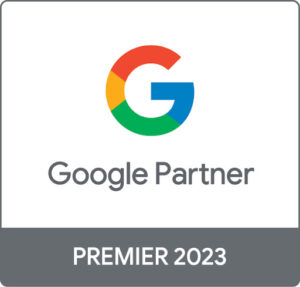There are two sides to the debate on Internet privacy.
On the one hand, there’s a strong argument that Internet usage should be private and companies like Google shouldn’t store your data without explicating telling you what they’re going to do with it. Well, to be honest, Google is pretty good at telling you what they’re going to do with your personal data and who will have access to it.
However, logging your Internet activity does have benefits like helping you remember where you’ve been and when personalising your online experience by serving you relevant ads and content that you might actually click.
Has tracking personal Internet activity gone too far? Or, are you OK with the idea that Google collects so much data on your browsing habits? Does Google use it in the name of progression or is our private information being sold off to advertisers and 3rd party corporations?
I’ll let you decide the moral implications of Google collecting so much data on us. Either way, here are 7 useful links that’ll tell you everything Google knows about you.
Note: you’ll need an active Google account to access all of these nifty tools and data insights.
Your Google Search History
Link: https://myactivity.google.com/myactivity
This is where you’ll find a log of your entire Google search history which is compartmentalised to web search, YouTube search, device and location.
The main thing you can do, apart from rediscovering the things you were Googling late last night, is manage your search data by deleting activity and viewing your search habits. It makes for some pretty interesting reading!
You can also view your entire map history which shows you where you’ve been logged into your Google account around the world on a Google Map
Your Google Ads settings
Link: http://www.google.com/settings/ads/
This is where you will find your personal settings for the ads that Google shows you. It’s what Google thinks what your interests are and shows you ads based on your interests.
You can customise your interests by adding or removing topics as well as change your sex and age. This is especially useful if you’re constantly being served useless or irrelevant ads by Google.
Here’s a secret – you can actually opt-out of having your data access by Google Analytics.
You can also read more about Google’s ad policy here.
Your Google location history
Link: https://maps.google.com/locationhistory
This is where you’ll find a list of places where you have used Google to do anything. You can change the date settings to view all the places you’ve been during a specific time period and visit each location point for more information.
It’s a useful tool because if you’re like me and struggle to remember what you did last week, it’s all here!
You can also change your location settings and stop Google tracking your every movement.
Export everything Google knows about you
Link: https://www.google.com/takeout
This one’s pretty cool. Previously called ‘Takeout’ this nifty tool allows you to select and download a copy of all the data Google knows about you.
You can choose from amongst every single Google product that you use from Gmail, Chrome, bookmarks, calendar, contacts, Google Drive, Maps, YouTube, Fit data, etc.
Everything is downloadable and configurable – nice!
Manage all of your Google services in one place
Link: https://www.google.com/settings/dashboard
This is a super useful dashboard that has everything you need to know about all of the Google services that you are using in one place. As is often the case with Google – there’s a crazy amount of data and insight in here if you start digging and sifting through.
I use this dashboard to simply keep tabs on the Analytics and AdWords accounts I have access to. I also use it to manage my Calendar, Contacts, Drive and Gmail accounts.
Your YouTube search history
Link: https://www.youtube.com/feed/history/search_history
Yep, you guessed it – YouTube saves all of your searches too. I guess the only real use for this feature would be if you watched a video but forgot what you searched to find it. By checking your search history you’re able to go back in and find that video you’ve been looking for.
However, there’s a better way to do that…
Your YouTube watch history
Link: https://www.youtube.com/feed/history
So yeah, this is a better way to find previous videos that you’ve watched. If like me you’ve got lost in the dark corners of YouTube and stumbled on a hilarious or interesting video or two, this feature is pretty useful for finding it again.
App permissions for your Google account
Link: https://security.google.com/settings/security/permissions
This is where you can view and manage what permissions you gave to the extensions and sites that you use. Nothing too exciting but it’s useful to check every once in a while to make sure you remove access for Apps you’re no longer using.
Why the sudden push for all this transparency?
In recent years, Google has made big steps towards appearing more transparent with how they collect and use your personal data.
“Know that we do not sell your personal information. And you control the types of information we collect and use. Lastly, no one does more to keep you and your information safe and secure.” – Google
But what prompted this shift in privacy policy? Some speculate it’s because of how critical Apple have been of Google’s use of personal data.
Apple CEO, Tim Cook, even said;
“We don’t build a profile based on your email content or web browsing habits to sell to advertisers. We don’t ’monetise’ the information you store on your iPhone or in iCloud. And we don’t read your email or your messages to get information to market to you. Our software and services are designed to make our devices better. Plain and simple.”
Whichever side of the debate you align with, we hope that you’ve found this page useful by having more of an understanding of what Google knows about you and why it’s collecting your personal data.










